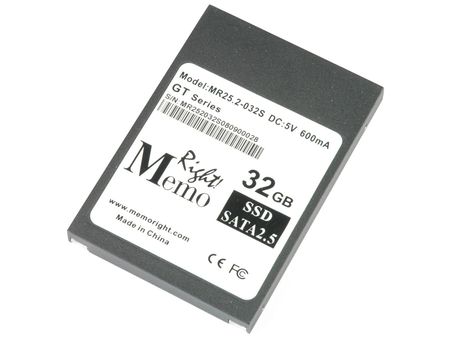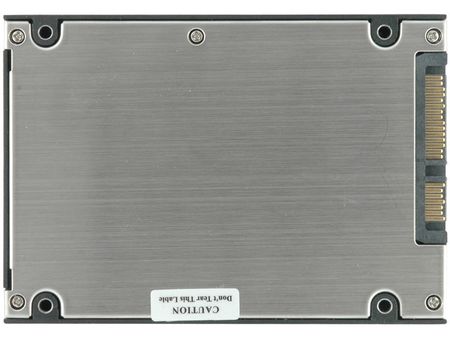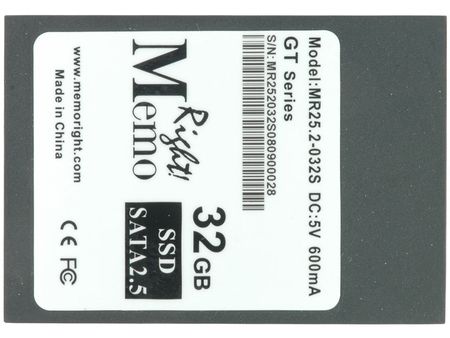Memoright SSDs: The End of Hard Drives?
Memoright SSD MR25.2-032S
Update : Memoright asked us to emphasize that this drive aims at the server market, as the cost for SLC Flash SSDs (single level cell) is still unreasonably high. Random read and write performance is where SSDs are strongest, and where they beat conventional hard drives by orders of magnitude.
The Memoright Flash SSD MR25.2-032S is available in several capacities of 8, 16, 32, 64 and 128 GB. We received four 32-GB drives, which allowed us to do RAID 0 benchmarks, so we could see the potential of flash SSD when set up in RAID arrays. All of these come with a five-year warranty, which is comparable to other enterprise hard drives on the market. The warranty is also a sign of faith in flash SSD’s reliability.
We found that the performance of the Memoright 32-GB flash SSD is awesome. The 0.1 ms access time is similar to what other Flash SSDs deliver, but the 115 MB/s read transfer rate is a new record for Flash SSDs. The cool part is that write performance is almost as high. Mtron’s 32-GB flash SSD reached 95 MB/s read performance on our storage test system, but it was limited to 75 MB/s write performance. With the exception of the Webserver benchmark, all other I/O performance results are dominated by Memoright: 700-4,300 I/O operations per second are significant, which is approximately between 4x and 20x faster than a Western Digital WD1500 Raptor.
Although we found that the sequential throughput does not reach the interface bandwidth, the next SSD generation will certainly have to use SATA/300 instead of SATA/150 to avoid the interface becoming a bottleneck. When we compared four Memoright 32-GB flash SSDs to four Seagate Savvio 10K.2 2.5” SAS drives and four 3.5” WD1500 Raptor drives, we found the conventional drives don’t stand a chance against the four Memoright device. A 0.2-ms access time is amazing for a RAID 0 array (vs. 7.4 ms for the Seagate Savvio 10K.2 and 8.5 ms for WD’s Raptors). The Memoright flash SSDs also sustain a minimum write transfer rate of 323 MB/s in RAID 0, while the Savvios drop to 199 MB/s and the Raptors go down to 177 MB/s. The read throughput of 450 MB/s for the Mtron quartet is equally impressive.
The 128-GB version is priced at $3,500, which is way too much for the vast majority of us. A 64-GB version still costs slightly more than $2,000, but the 32-GB device is priced at $1,049, which is not out of reach for power users and enthusiasts. Other 32-GB flash SSDs may be much cheaper (DV Nation offers the Mtron device for $699), but they also aren’t as fast. If you are a true hardcore user with a flexible budget then you should not hesitate. For everyone else I can only repeat the recommendation I made half a year ago: Capacities, performance and price points will only drop considerably over time.
Get Tom's Hardware's best news and in-depth reviews, straight to your inbox.
Current page: Memoright SSD MR25.2-032S
Prev Page Flash SSD Tech Talk Next Page Test Controller: Adaptec RAID 5805

